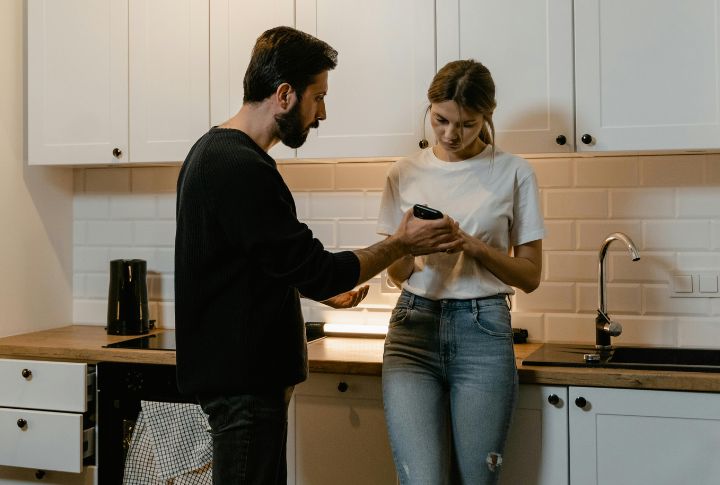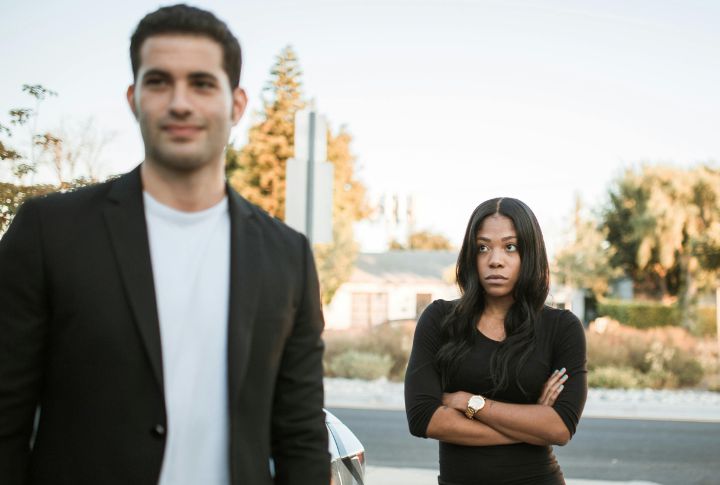
Ever noticed how a simple “sure” or “thanks” can feel…off? Politeness sometimes hides a quietly brewing storm. Women have mastered the art of civility while secretly checking out of a relationship. Let’s decode the subtle, courteous phrases that hint she’s already given up—but still keeping it polite. Buckle up!
“Do Whatever You Want”

Although it sounds like she’s okay with anything, “Do whatever you want” usually shows she doesn’t really care. She has stopped trying to argue. And sometimes it’s her playful way of testing if you’ll take responsibility for your choice while she steps back politely.
“I’m Busy Right Now, Maybe Later”

This polite excuse avoids intimacy, conversation, or meaningful connection. The “maybe later” rarely implies a real future chat. Rather, it reflects emotional withdrawal, showing little interest in engaging with others. Her words also create distance, keeping her outward behavior calm and quietly protecting herself from unwanted interaction.
“You’re Right”

Saying “You’re right” can be more about ending an argument than genuine agreement. She might feel frustrated if her views are ignored and quietly lets it go. You can even hear it as, “Sure, whatever you say,” even if she’s not convinced.
“Go Have Fun”

The phrase “go have fun” isn’t just casual encouragement. Often, it shows a desire to avoid conflict or confrontation. It may also indicate she has given up expecting consideration or reciprocity. Although seeming supportive, it hints at quiet disinterest and maintains a calm interaction.
“I’m Tired”

Those two words, “I’m tired,” hang heavier than they appear. Beneath the polite tone lies fatigue from repeated disappointments and silent frustration. It’s a careful retreat, a signal that she is emotionally drained and needs to reclaim space while maintaining civility.
“We’ll Talk About It Later”

Often implies that “later” may never actually come, indicating that the conversation is effectively on hold indefinitely. Suggests she is avoiding confrontation, choosing to step back and let things be without directly engaging. On the surface, everything seems fine, yet she’s subtly letting go.
“Thanks, But I’ve Got It”

Saying “Thanks, but I’ve got it” is usually more about asserting independence than expressing gratitude. It can show she’s stopped depending on help, sometimes due to past disappointments or inconsistent support. The phrase also helps maintain dignity as she gracefully withdraws and avoids potential frustration or unmet expectations.
“Thanks, But I’ve Already Planned It”

On the surface, it sounds courteous, yet it’s firm. By saying “Thanks, but I’ve already planned it,” she’s drawing a quiet line. Her life is no longer subject to his suggestions, and this gentle refusal masks the truth: she’s focused elsewhere and doesn’t want his interference dictating her choices.
“That’s Interesting”

The phrase sounds neutral, yet it often carries a hidden critique. “That’s interesting” is her polite way of processing something she thinks is flawed or ill-conceived. That is her way to preserve civility while silently questioning his judgment, letting him speak without giving genuine validation.
“That’s… Thoughtful of You”

“That’s… Thoughtful of you” hangs in the air like a delicate mask of civility. Each word is carefully measured, polite but heavy with unspoken critique. The pause further stretches long enough for judgment to seep through, which leaves a trace of disapproval hidden in plain sight.

